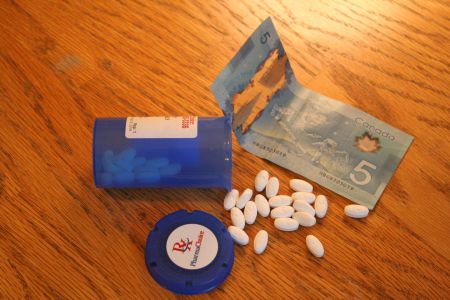K'JIPUKTUK (HALIFAX) – People struggling to make ends meet have been known to cut back on prescriptions so as to be able to buy food or pay the rent.
That's why there was concern among poverty activists when last week the Department of Community Services announced the phasing out of the Extended Pharmacare program. That program helps low-income working people pay for their medications
In a press release the government claims the move is just a streamlining exercise.
The existing 300 or so users will be allowed to remain in the program. But new people looking for help paying for their medication can join the Family Pharmacare program instead, a press release states.
The problem is that this Family Pharmacare program makes buying medications a lot more expensive.
Paul O'Hara, a social worker with the North End Community Health Centre, believes that saving money is the true motivation behind the move.
“It seems to me that the government is nickel and diming people that are leaving welfare for low income jobs,” O'Hara tells the Haifax Media Co-op.
O'Hara mentions a client who makes about $700 per month on a Canada Pension. He doesn't qualify for welfare because of his income and because he lives is in a apartment building with a subsidized rent.
Under the new program his client will end up paying 20 per cent of the prescription costs to a maximum of about $400 in deductible and co-payments per year, says O'Hara
He suggests that this is hundreds of dollars more than this same person would have paid under the Extended Pharmacare rules. That program simply charges a set fee of $5.00 per prescription.
Community Services says they are only rationalizing and streamlining services. Why have two pharmacare programs when one will do?
“This is about avoiding duplication of services while still meeting the needs of Nova Scotians,” Lori Errington, spokesperson for Community Services writes in an email to the Halifax Media Co-op. “It makes sense to deliver pharmacare services through one program.”
All kinds of help is available for people facing added costs, Errington writes, pointing to the Special Needs program that is put in place to supplement social assistance supports in very specific circumstances.
O'Hara, who has seen the bar to qualify for the Special Needs program raised considerably during consecutive NDP and Liberal governments, is not impressed.
“The department is implying that if there are (prescription) co-payments you can ask your case worker. But we know what they do with those requests,” says O'Hara. “There is no way they are going to help with co-payments if somebody makes more than basic welfare.”
For O'Hara it is all part of a pattern.
“To me these guys are just spin doctors and they are looking for ways to minimize expenses at the cost of very vulnerable Nova Scotians,” O'Hara says.
Follow Robert Devet on Twitter @DevetRobert



